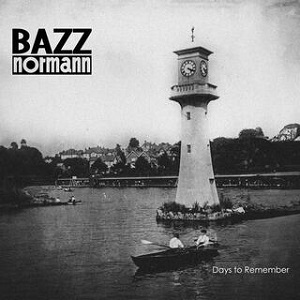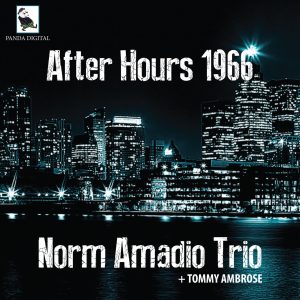Album review overview: The Veer Union, Mozzy and more
Dozens of new albums arrive at Maxazine’s editorial staff every week. There are way too many to listen to them all, let alone review them. It ensures that too many albums are left behind. And that’s a shame. That is why today we post an overview of albums that arrive at the editors in short reviews.
BAZZ Normann – Days to Remember
With “Days to Remember,” the Belgian band BAZZ Normann steps into the world of alternative rock. The album compiles what the band has released over the past few years, including singles and EPs. Vocalist Steffi Onderbeek serves as the face of the band, delivering a nostalgic blend of ’80s indie pop and ’90s Britpop. Think of influences like Oasis, The Cure, and Echo & the Bunnymen, but with a fresh, contemporary twist. The songs exude alienation and longing, themes Onderbeek conveys with conviction. Yet, the band avoids sounding gloomy; the guitar work of Johan Lagaert and Bart Heyman adds energy and depth to the music. Tracks like “All Because of You” and “Selling Stories” are catchy without becoming clichéd, evoking ’90s nostalgia. BAZZ Normann balances accessibility with artistic integrity. However, the production is a glaring drawback. While the songs are strong, the recording feels bare and amateurish, lacking the rich sound the material deserves. A shame, as the band is capable of so much more. (Anton Dupont) (5/10) (Self-released)
Mozzy – Lucky Her
As his criminal record suggests—marked by weapons charges and a recent stint at USP Atwater until May 2023—Mozzy remains committed to a musical formula that is as predictable as it is problematic. “Lucky Her” comprises ten tracks that push the limits of artistic stagnation. The production feels like an algorithmic take on street rap—clinical, overproduced, and drenched in auto-tune that smothers any authentic emotion. “Eggs in the Morning” is the nadir, a track that plods along as a tired rehash of genre clichés. Timothy Patterson, as the courts know him, delivers lyrics reflecting a worldview as narrow as it is troubling. The misogyny permeating the album feels not only outdated but outright embarrassing for an artist aiming for relevance in 2025. For a rapper once lauded for “Bladadah” (2015), this new release is a painful display of artistic regression. The target audience appears to value posturing over poetry and bravado over authenticity. Perhaps the only “lucky” entity here is the label hoping to profit from this. (Elodie Renard) (2/10) (Mozzy Records/Empire)
Marianne Solivan – Break’s Over
Marianne Solivan demonstrates with “Break’s Over” why she ranks among the top jazz vocalists of her generation. Known for her energetic performances and deep emotional expression, she presents a mix of jazz standards and original compositions on this album. Joined by a trio of top musicians—bassist Buster Williams, pianist Brandon McCune, and drummer Jay Sawyer—Solivan achieves the perfect balance between tradition and personal expression. The album opens with the powerful “Open the Door,” immediately showcasing the record’s musicality. Tracks like “Drifting Through This Maze” and “The Other Half of Me” highlight Solivan’s ability to convey a wide range of emotions, from loss to hope. Her voice is warm, pure, penetrating, and sincere, without resorting to theatrics. The production deserves praise for its warmth and authenticity. “Break’s Over” is both a tribute to jazz and a testament to Solivan’s unique and commanding voice. The album is accessible yet profound, appealing to seasoned jazz enthusiasts and new listeners alike. (Norman van den Wildenberg) (8/10) (Imani Records)
The Veer Union – Welcome to Dystopia
Straddling the line between authentic hard rock and digital overproduction, The Veer Union presents their latest work as a whispered cry for help. “Welcome to Dystopia,” with its modest eight tracks, reveals a band trapped in its sonic paradox. The opener “No Excuse” sets the tone: expertly written material suffocating under a blanket of overproduction. Glimmers of hope shine through in “Is This How It Ends,” where frontman Crispin Earl’s vocal power pierces the digital haze, only to retreat again behind a wall of compression in the chorus. The title track unintentionally mirrors the state of modern rock production—a dystopia where authenticity battles automation. Earl’s dual role as singer and producer works against him here, with quantity seeming to outweigh quality. A five out of ten: strong compositions that yearn for breathing room beneath their digital armour. (Jan Vranken) (5/10) (Rock Shop Records)
Norm Amadio Trio – After Hours 1966
Search for “Cellar” and jazz in Canada, and you’ll land on a label founded in 2001, named after a club in Vancouver. Yet, the legendary namesake in Toronto remains absent from mention. This is odd, as The Cellar in Toronto was once the centre of Canada’s jazz universe. Legends like Chet Baker, Stan Getz, Dinah Washington, and even Miles Davis graced its stage, often accompanied by a house trio led by pianist Norm Amadio. The late-night sessions were the highlight, as captured in “After Hours 1966.” Here, the trio—Bob Price on bass and Stan Perry on drums—accompanies local hero Tommy Ambrose, who was just starting his career in 1966. Ambrose, now 85, would later gain fame for his Sinatra tributes, a style already evident in these recordings. The ambience, recorded around 3 a.m., perfectly captures the smoky, intimate vibe of jazz in its heyday. Tracks like “This Is the Last Time” and the bossa nova “The Skies” showcase Amadio’s light, almost languid piano style, while the crooner vocals of Ambrose shine on three of the five pieces. The closing track, “My Love Can’t Wait,” feels like a love letter to the night and the jazz that defines it. A quick search for “Cellar” and Toronto now points to a permanently closed wellness centre—perhaps closer to the truth than expected, as this is pure wellness. (Jeroen Mulder) (7/10) (Panda Digital)
![]()










